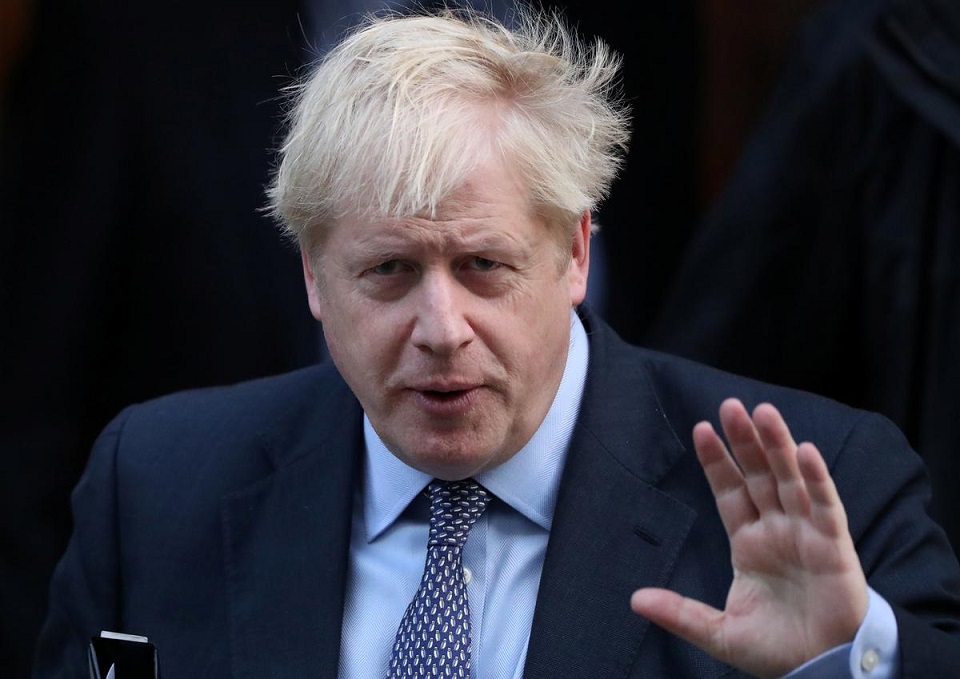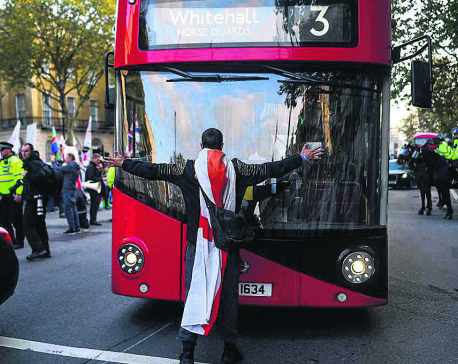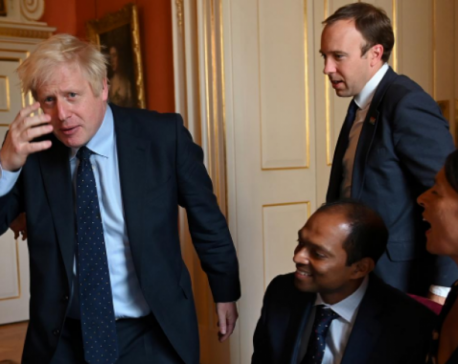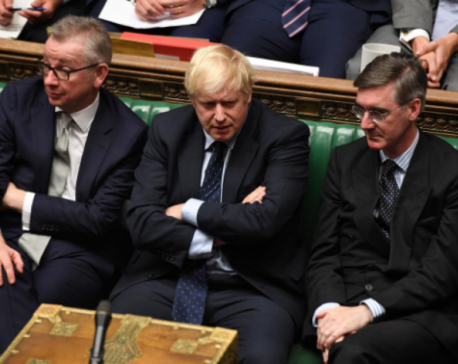
OR
Brexit will happen on Oct. 31 despite PM's unsigned delay request, UK says
Published On: October 20, 2019 05:20 PM NPT By: Reuters

LONDON, Oct 20: Britain will leave the European Union on Oct. 31 despite an unsigned letter that Prime Minister Boris Johnson was forced by his opponents to send to the bloc requesting a Brexit delay, the government said on Sunday.
The Brexit maelstrom has spun wildly in the past week between the possibility of an orderly exit on Oct. 31 with a deal that Johnson struck on Thursday and a delay after he was forced to ask for an extension late on Saturday.
Johnson’s defeat in the British parliament over the sequencing of the ratification of his deal exposed the prime minister to a law passed by his opponents demanding he request a delay until Jan. 31.
Johnson insisted he did not want what he cast as a deeply corrosive delay to Brexit beyond the Halloween deadline. One of his most senior ministers said Britain would still leave the bloc on Oct. 31.
“We are going to leave by October 31. We have the means and the ability to do so,” Michael Gove, the minister in charge of no-deal Brexit preparations, told Sky News.
“That letter was sent because parliament required it to be sent ... but parliament can’t change the prime minister’s mind, parliament can’t change the government’s policy or determination.”
In an extraordinary step that indicates the extent of the Brexit fever gripping the United Kingdom, Johnson sent three letters to Donald Tusk, the president of the European Council.
First, a brief cover note from Britain’s EU envoy explaining that the government was simply complying with the law; second, an unsigned photocopy of the text that the law, known as the Benn Act, forced him to write; and a third letter in which Johnson said he did not want an extension.
“I have made clear since becoming Prime Minister and made clear to parliament again today, my view, and the Government’s position, that a further extension would damage the interests of the UK and our EU partners, and the relationship between us,” Johnson said in the third letter, signed “Boris Johnson”.
The EU, which has grappled with more than three years of tortuous Brexit crisis, was clearly bewildered by the contradictory signals from London.
Tusk said he had received the request from Johnson.
“I will now start consulting EU leaders on how to react,” he said on Twitter.
French President Emmanuel Macron told Johnson that Paris needed swift clarification on the situation after Saturday’s vote, an official at the French presidency told Reuters.
“He (Macron) signalled a delay would be in no one’s interest,” the official said.
It was unlikely that the EU’s 27 remaining member states would refuse Britain’s delay request. Diplomats said on Sunday the bloc would play for time rather than rush to decide, waiting to see how things developed in London next week.
You May Like This

Britain’s post-Brexit choices
With the UK set to hold a crucial parliamentary election on December 12, it still is not clear whether, when,... Read More...

British PM Johnson demands October 15 election after defeat over Brexit
LONDON, Sept 4: British Prime Minister Boris Johnson on Wednesday demanded an Oct. 15 snap election after lawmakers seeking to prevent... Read More...

British PM Johnson bids for election as opponents seek to stop no-deal Brexit
LONDON, Sept 4: British Prime Minister Boris Johnson will try to call a snap election on Wednesday after lawmakers seeking to... Read More...



Just In
- 352 climbers obtain permits to ascend Mount Everest this season
- 16 candidates shortlisted for CEO position at Nepal Tourism Board
- WB to take financial management lead for proposed Upper Arun Project
- Power supply to be affected in parts of Kathmandu Valley today as NEA expedites repair works
- Godepani welcomes over 31,000 foreign tourists in a year
- Private sector leads hydropower generation over government
- Weather expected to be mainly fair in most parts of the country today
- 120 snow leopards found in Dolpa, survey result reveals







_20220508065243.jpg)








Leave A Comment